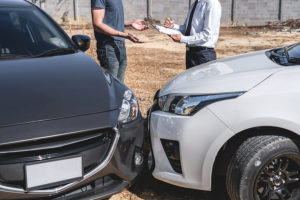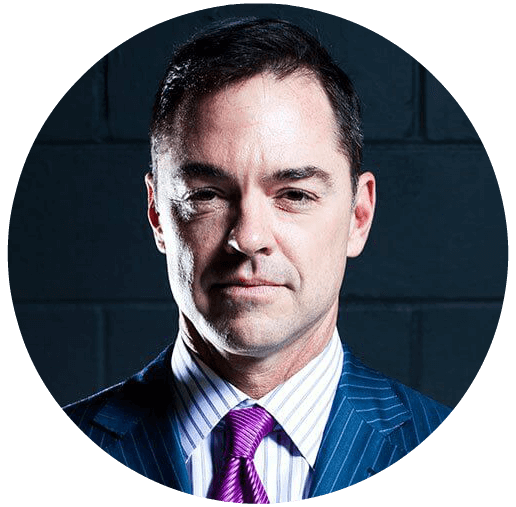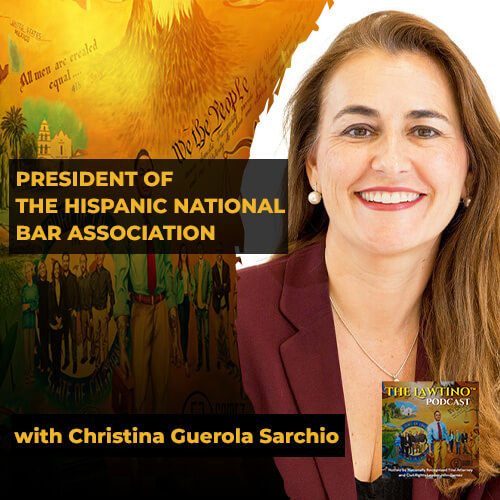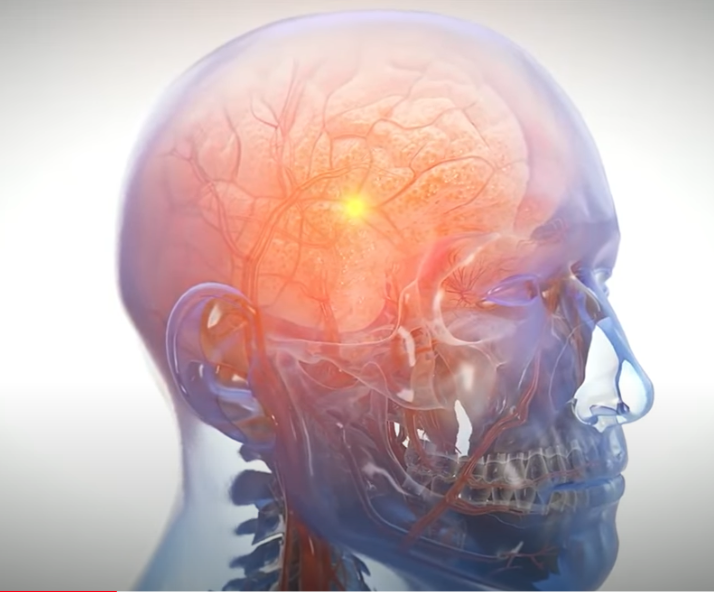If you are a car accident victim, then one of the most important things you need to know is who was at fault for the crash and your injuries.
 Why? Because the law holds the parties at fault for a car accident financially responsible for the harm suffered by accident victims. So, determining who was at fault in your accident is the first step in obtaining the compensation you need and deserve for your injuries and losses.
Why? Because the law holds the parties at fault for a car accident financially responsible for the harm suffered by accident victims. So, determining who was at fault in your accident is the first step in obtaining the compensation you need and deserve for your injuries and losses.
Most car accident victims need assistance to figure out who was at fault in the car accident that injured them. Experienced car accident injury lawyers know that even when fault seems obvious, the law can surprise you, as we explain below in exploring the ways lawyers go about identifying the parties at fault for their clients’ injuries.
To learn more about who may have fault for the car accident that disrupted your life, contact an experienced car accident injury lawyer today for a free case evaluation.
Fault, Legal Liability, and Negligence
First, let’s take a look at what fault means for lawyers and why it is important.
For most of us, fault has a pretty broad meaning. We often say “It’s my fault,” more as a way to accept responsibility or apologize for a situation than to describe a cause and effect.
For car accident lawyers, fault has a more precise and nuanced definition. It means having made a decision or taken an action that directly or indirectly (but closely) caused an outcome, such that the law holds you financially responsible. At the risk of oversimplifying (because, believe us, this can get really complicated), lawyers use fault to refer to one way the law holds someone liable for damages someone else suffered.
In car accident cases, fault is also a close cousin of a legal concept called negligence. In the most basic sense, figuring out if someone was negligent is a way of finding fault.
Lawyers say that someone’s negligence makes them at fault when:
- They owed a duty of care not to act in a way that put others at an unreasonable risk of harm;
- They breached that duty by engaging in unreasonably dangerous actions that put others in harm’s way; and
- They caused harm to someone through those actions.
Most, but not all, car accidents happen because of one or more person’s negligence, making them at fault. However, negligence is not the only way someone can be at fault, and sometimes you do not even need to be at fault to have legal liability.
For example:
- Car accidents can happen because someone intentionally does something harmful, like ramming another vehicle in a road rage incident. That wrongdoer would also be at fault.
- Someone is also said to be at fault if the law makes them strictly liable, meaning they have legal liability for the harm their actions cause even if they did not breach a duty of care. Auto parts manufacturers often have this kind of legal liability if they make defective products that fail and cause an accident.
- Even someone who is not at fault at all can still be legally liable for someone else’s injuries if they have a legal obligation to answer for the actions of someone who was at fault. An employer, for example, usually has legal liability for the harm done by its employee, even though the employer itself might not have done anything wrong.
All of which is to say, when car accident injury lawyers go looking for fault in a crash, they do so as part of an investigation that aims to identify anyone and everyone who may have legal liability for their client’s injuries and losses. The party a lawyer identifies as at fault can face that legal liability, and may also give the lawyer clues to what other parties may also have legal liability, even though they were not necessarily at fault.
As we said, this can get complicated. Now, let’s take a look at how lawyers identify the parties at fault.
Method I: Crash Victim Observations
Often, victims in a car accident have a very clear sense of who is at fault. You’re sitting at an intersection at a stoplight, for example, and the car behind you rear-ends you. You’re only human if you conclude that the other driver is at fault.
Still, it is important to observe the scene. What you see and hear may provide important clues to who may also have liability to you for your injuries. Of course, your safety takes priority. If you can, should move to a safe position (out of traffic) and call 911. Then, calmly exchange information, such as your insurance and contact information with all other involved parties.
Don’t, at that point, get into a discussion about who caused the crash. Never say it’s your fault. It is not your responsibility to assess fault at that moment, and besides, you do not want to escalate tensions.
Pay attention if a driver (or other party, such as a passerby) admits or denies responsibility, or tries to explain what happened. If there are eyewitnesses, talk to them (if they are willing) and get contact information. A driver who rear-ends you, for example, may apologize and say “Nothing happened when I pumped the brakes!” If that statement is true, fault could lie with a brake manufacturer, a car manufacturer, or a repair shop.
If you carry a smartphone, take pictures of all vehicles and the accident scene. Show the points of impact between vehicles, the damage, the debris, the surrounding area, your injuries … everything you see. When it comes to capturing images of an accident scene, more is better.
Share all of this information—your personal observations, what others said to you, any information or images you collected, and so on—with your attorney.
Method II: The Official Accident Report
By law, you must report a car accident in which someone is injured or dies, or in which a car sustains anything more than minor damage (and even then, it is a good idea to report it). Call 911 after the accident (if you are able). You also need to file a state form within 10 days of the accident.
Law enforcement will prepare an official accident report that collects basic information about the crash, injuries, and parties involved. It may also offer the officer’s perspective on who has fault for the accident. The officer’s opinion is important, but it is not necessarily the last word on the matter. A police report does not always give the full picture of what happened in an accident or whose decisions or actions may have caused it.
Lawyers rely on official police reports as important sources of information about an accident that can point to fault. Experienced lawyers know, however, the importance of questioning the information the report contains, and of digging deeper when appropriate, to uncover evidence that can point to other at-fault parties.
Method III: Investigation
Experienced car accident injury lawyers know that independent investigation of the facts and circumstances of an accident will often lead to important revelations about who was at fault for a crash. Using your observations and the police report as a starting point, an attorney may start interviewing witnesses, tracking down security camera footage or electronic data, and gathering other information that could point to one or more parties’ fault.
Lawyers sometimes also work with forensic specialists to evaluate evidence and reconstruct accident scenes, to help them determine how a crash happened and who shares blame for it. Detailed measurements of vehicle trajectories, impact sites, damage to vehicles, collateral damage (in trees and bushes, say), and tire marks can all contribute to an understanding of what occurred.
At times, investigators evaluate whether the accident could have occurred in the way the other party says it did, by analyzing the type of damage the vehicles sustained and other evidence. Evidence that disproves the other party’s version of events can go a long way toward helping a lawyer determine who was at fault.
Method IV: Injury Analysis
Just as damage to your car can reveal how and likely why it was hit, your injuries can offer valuable insight into who has fault for your car accident.
Certain injuries can only occur because of specific kinds of impacts, for example. If you were sent flying through a windshield, the impact very likely caused your vehicle to stop suddenly. The severity of a particular type of injury can reflect the force of an impact.
To make sure you preserve the evidence that your injuries can offer, be sure to seek immediate medical attention after any car accident, even one in which you think you only suffered minor scrapes and bruises. The primary reason for seeking care is to safeguard your health and safety, of course, by diagnosing and treating any injuries (especially ones that do not necessarily show symptoms right away, but which if left untreated could cause serious, even fatal, health complications).
The secondary reason for seeking immediate, appropriate medical care is to ensure that medical records exist of your injuries and their connection to your accident. A medical professional’s observations about your condition can offer critical perspective on how your injuries occurred, which in turn can point to the fault of any number of parties.
Be sure to follow all doctor’s recommendations to the letter. Again, this is primarily for your health and safety. But also know that, if you don’t follow doctor’s advice, insurance companies can pounce upon this as proof (in their view) that you weren’t hurt as badly as you say—or even more disturbingly, that any harm you suffered is your fault, for not following medical recommendations. Don’t let that happen!
Method V: Legal Discovery
Lawyers do their best to identify parties that have a legal liability to their clients before taking legal action. However, sometimes they need the authority of an official legal process behind them to obtain the information they need to prove someone’s fault. That is where legal discovery comes in.
Discovery is a step in a lawsuit in which the parties request and exchange information with each other. It is a powerful tool that lawyers have at their disposal to obtain documents and testimony from parties they believe are at fault. Sometimes, discovery merely serves to confirm what the lawyer already suspected – that a party’s unreasonably dangerous decisions or actions caused the accident, making them at fault.
In other instances, discovery truly discovers new facts that can lead the lawyer’s inquiry in new directions that pin fault on other parties, including parties the lawyer and injured client had not even suspected. When this happens, the lawyer may have the option of adding that new party to the lawsuit as a party with legal liability.
Choose Your Attorney Wisely

The skill and experience of the attorney you choose to represent you after suffering injuries in a car accident can make all the difference in finding out who is at fault for your crash. Always look for an attorney who has years of accumulated knowledge about car accidents and their causes to put to work on your behalf. By selecting your legal representation carefully, you will give yourself the best possible chance at recovering the full amount of compensation you need and deserve.
Finally, do not worry about the cost. An experienced car accident attorney will meet with you for an initial consultation free-of-charge, and in virtually all cases will represent you on contingency. You pay no money upfront. Instead, the attorney works for a percentage of any money recovered on your behalf.
Get started on figuring out who was at fault in the car accident that injured you by contacting a skilled, experienced local car accident injury attorney today.
Gomez Trial Attorneys
655 West Broadway, Suite 1700
San Diego, CA 92101
Phone: (619)-237-3490







